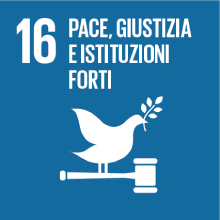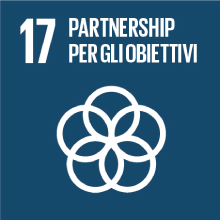HISTORY OF U.S. FOREIGN RELATIONS
- Anno accademico
- 2020/2021 Programmi anni precedenti
- Titolo corso in inglese
- HISTORY OF U.S. FOREIGN RELATIONS
- Codice insegnamento
- LM5730 (AF:317066 AR:175560)
- Lingua di insegnamento
- Inglese
- Modalità
- Crediti formativi universitari
- 6
- Livello laurea
- Laurea magistrale (DM270)
- Settore scientifico disciplinare
- SPS/05
- Periodo
- I Semestre
- Anno corso
- 2
- Spazio Moodle
- Link allo spazio del corso
Inquadramento dell'insegnamento nel percorso del corso di studio
Risultati di apprendimento attesi
a) a confident knowledge of the facts, concepts and characters of US foreign policy from the 19th to the 21st century, with an emphasis on the post-1945 decades;
b) a confident knowledge of the main interpretations concerning the drivers, the making and the outcomes of US foreign policy;
c) a good degree of ability in treating various kinds of primary and secondary sources and to critically interpret them on their own;
d) the basic methodological tools for the elaboration of autonomous research work in the field of intellectual history;
e) a good degree of knowledge of the lexicon of US foreign policy, finalized at the communication of historical and political contents also beyond the scope of the course itself.
Prerequisiti
Contenuti
Testi di riferimento
1) the class notes, the slides from the classes and other materials (videos, documents, etc.), which will be made available on Moodle;
2) a reference textbook such as:
a) Michael Hunt, The American Ascendancy, Chapel Hill, University of North Carolina Press, 2007
b) M. Cox and D. Stokes (eds.), US Foreign Policy, Oxford, Oxford University Press, 2012, sections 1, 3, 4 and 5 (organized thematically, this is a rather dense reading, falling somewhere between a handbook and a selection of articles)
c) Perry Anderson, American Foreign Policy and Its Thinkers, London, Verso, 2014 (very synthetic and bent on interpretation, this is advisable for students who already have some acquaintance with the facts and the protagonists, because it seldom stops to introduce them)
d) George Herring, From Colony to Superpower, Oxford, Oxford University Press, 2008 (this is some 1100 pages, so it introduces subjects and actors in a very detailed way)
e) any other comparable textbook that you may already possess, after discussing the matter with the teacher.
3) any other appropriate source, as required by their final paper (see description of exam).
Students who do not attend the class can prepare the exam on:
1) a reference textbook such as:
a) Michael Hunt, The American Ascendancy, Chapel Hill, University of North Carolina Press, 2007
b) M. Cox and D. Stokes (eds.), US Foreign Policy, Oxford, Oxford University Press, 2012, sections 1, 2, 3, 4 and 5 (organized thematically, this is a rather dense reading, falling somewhere between a handbook and a selection of articles)
c) Perry Anderson, American Foreign Policy and Its Thinkers, London, Verso, 2014 (very synthetic and bent on interpretation, this is advisable for students who already have some acquaintance with the facts and the protagonists, because it seldom stops to introduce them)
d) George Herring, From Colony to Superpower, Oxford, Oxford University Press, 2008 (this is some 1100 pages, so it introduces subjects and actors in a very detailed way)
e) any other comparable textbook that you may already possess, after discussing the matter with the teacher.
2) Hal Brands, Making the Unipolar Moment, Ithaca, Cornell University Press, 2016
3) any other appropriate source, as required by their final paper (see description of exam).
Modalità di verifica dell'apprendimento
1) Evaluation in itinere (for "attending" students only)
Attending students will be evaluated in itinere: participating actively and constructively in the class discussions will contribute up to 15% of the final grade; a written test via moodle during the sixth class of the course will contribute up to another 25%. The written test will be an "open book test" and will require students to answer clearly and precisely to two questions relating to the pre-1968 period. The questions will be formulated so as to allow the verification of the acquisition by the students of the notions related to the program up to 1968 (events, actors, processes, concepts), as well as the students' ability to communicate contents in the history of US foreign relations. Students will then prepare, in groups of 3-4 participants, a final paper of some 3500 words (exluding notes and bibliography) on a topic in post-1968 US foreign relations: they will present and discuss their papers before the class in the final weeks of the course (up to 25% of the final grade, with an emphasis on the clarity and precision in communication) and then, by the end of the course, they will turn in the updated final version of their papers, which will have to show a confident knowledge of the literature on the given topic and the ability to critically treat the sources about it, as well as the ability to frame the topic critically and to organize a research on historical topics (up to 35% of the final grade).
2) Final exam with written paper and oral examination
In this case, students will write an individual paper of about 3500 words (excluding bibliography and footnotes) on a topic in the history of US Foreign Relations, communicated to and discussed with the teacher well in advance of the exam. The paper must be uploaded in moodle one week before the chosen exam session and, in addition to being assessed as such (40% of the final grade), it will be the subject of a question in the context of an individual oral exam (20% of the final grade). Overall, the paper and its oral discussion will serve to verify the knowledge of the literature on the given topic and the ability to critically treat the sources on it, as well as the ability to frame the topic critically and to organize a research on historical topics. At the oral exam, which will have a total duration of about 30 minutes, in addition to discussing their written essays, "attending" students will have to answer clearly and precisely to two sets of questions concerning two different topics covered in the reference textbook(s) (40% of the final grade ). This part of the oral exam will verify the acquisition of the notions related to the program (events, actors, processes, concepts) and the ability to communicate contents in the history of US foreign relations with clarity and precision.
NB: The calendar of the in-class presentations will be decided at the beginning of the course, based on the number of groups who wish to present their papers. Also, the uncertainty concerning the COVID-19 epidemic makes these indications subject to possible changes. Any such changes will be communicated in due time in the appropriate forms.
Modalità di esame
Metodi didattici
Altre informazioni
When writing private emails to the professor, Italian students are kindly invited to write their messages in Italian.
Students with disabilities can contact the Disability and Accessibility Office (disabilita@unive.it) to take advantage of the services available (e.g. alternative examination methods, readers, etc.).
Students interested in carrying out a master's degree thesis in History of US Foreign Relations can ask the teacher, after passing the exam, for the appropriate vademecum for the thesis (by writing directly to duccio.basosi@unive.it).
Obiettivi Agenda 2030 per lo sviluppo sostenibile
Questo insegnamento tratta argomenti connessi alla macroarea "Cooperazione internazionale" e concorre alla realizzazione dei relativi obiettivi ONU dell'Agenda 2030 per lo Sviluppo Sostenibile


